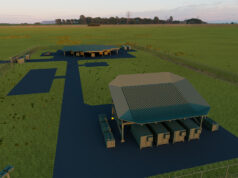The Ministry of Defence has released a detailed report on Space Warrior 24, a wargame held in July 2024, aimed at integrating commercial Space-Based Intelligence, Surveillance, and Reconnaissance (SBISR) into future defence strategies.
The event, hosted by UK Space Command, brought together military, industry, and international partners to assess how commercial space services can complement Defence-owned assets, according to an official report.
The wargame tested the hypothesis that using the “Access” model—utilising commercial capabilities rather than owning them—could provide resource-efficient solutions for defence needs.
Participants tackled scenarios escalating from competition to a NATO Article V conflict, exploring how commercial space services could be assured, their risks managed, and their interoperability enhanced.
Key Areas of Interest
Three primary themes emerged during the exercise:
- Assurance: Industry representatives highlighted their ability to operate in contested environments, but concerns arose about the limits of assurance during extreme warfare. The report suggested a UK Supplier Maturity Matrix to evaluate and enhance supplier capabilities.
- Risk: The reliance on commercial suppliers introduces risk, especially under the Access model. Defence may face challenges such as unavailable data or suppliers’ limitations in extreme conflict scenarios. Recommendations included sharing threat intelligence with commercial suppliers to mitigate risks and enhancing physical security across supply chains.
- Interoperability: The lack of common terminology between Defence and industry was flagged as a barrier. Participants suggested adopting collaborative frameworks, such as the Satellite Communication (SATCOM) industry’s trust-based fora, to improve coordination and confidentiality.
Findings and Recommendations
The Defence Science and Technology Laboratory (Dstl) provided several conclusions based on the wargame:
- Commercial space services offer Defence valuable opportunities, driven by high innovation and competition.
- MOD-owned capabilities provide higher assurance levels, particularly in contested environments, but a blended solution of both Access and Own models is essential.
- Developing a supplier assurance matrix would help MOD decision-makers understand risks and incentivise suppliers to enhance their capabilities.
- Improved contract negotiations with suppliers, albeit at a higher cost, could address many assurance, risk, and interoperability concerns.
- Establishing a shared language between Defence and the commercial sector is vital for effective collaboration.
Balancing Resilience and Flexibility
The report emphasised the trade-off between the resilience provided by MOD-owned capabilities and the flexibility of leveraging new technologies through commercial Access.
A combined approach, including collaboration with key allies, is seen as critical for future defence space operations.
Space Warrior 24 underscored the growing importance of commercial partnerships in the space domain while highlighting the challenges of maintaining assurance and managing risks in an increasingly contested environment. The findings will inform the MOD’s ongoing efforts to shape a robust and flexible space strategy.
At the UK Defence Journal, we aim to deliver accurate and timely news on defence matters. We rely on the support of readers like you to maintain our independence and high-quality journalism. Please consider making a one-off donation to help us continue our work. Click here to donate. Thank you for your support!












Instead of the iconic ‘hands’ ‘space’ ‘face’ we could use ‘think’ ‘space’ ‘brain’
F.A.B. Virgil. 😁❤️☮️